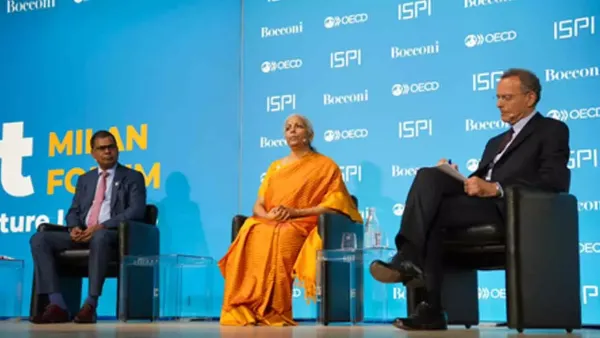In India’s evolving digital landscape, the brand new ET Snapchat Gen Z Index reveals a major shift in how Generation Z perceives influence. The Q1 report, powered by Kantar, shows that young consumers are no longer swayed by an influencer's celebrity status or follower count. Instead, authenticity is the new currency of trust.
Trust has a new face
Only 32% of Gen Z respondents said they were more willing to trust product endorsements by celebrities (data from past three months). In contrast, 42% reported trusting influencers who share honest, personal experiences. This finding points to a critical transformation — influence is no longer about star power but about sincerity.
The study indicates that 80% of Gen Z trust recommendations from influencers who present real, authentic experiences. While 75% still trust influencers with large followings, this trust is conditional on how “real” the content feels.
Gen Z is turning away from highly polished, aspirational marketing and is leaning into raw, unfiltered content that feels personal and genuine.

Micro wins over macro: Smaller voices, bigger impact
Micro-influencers — typically those with 1,000 to 100,000 followers — are fast becoming the most effective partners for brands targeting Gen Z. Their niche-specific content and perceived relatability are giving them an edge in the influencer economy.
This demographic is also budget-aware and ethically driven. The study notes that 85% of Gen Z buy brands with personal meaning, and 84% actively seek out the best deals — showing that influence also depends on value alignment and trust, not just style.

The decline of glamour marketing
The days of relying on Bollywood endorsements and glossy ad campaigns appear to be losing steam. The data highlights that Gen Z prefers storytelling that mirrors real life — even if imperfect. The emotional connection, not the glitz, is what drives loyalty.
With 67% of Gen Z respondents saying they trust celebrity recommendations, and 79% trusting influencers they feel they can relate to, it's clear that the authenticity of the message now outweighs the messenger’s reach or image.
What this means for brands
Gen Z's preference for authenticity demands a rethinking of brand communication. Companies aiming to connect with this generation must shift their marketing tone and strategy. Instead of investing in top-down celebrity campaigns, they are better served by building grassroots credibility through relatable influencers.
The ET Snapchat Gen Z Index’s Q1 report concludes that Gen Z isn’t interested in hype or spectacle — they value transparency, relatability, and ethical values in the brands they support.

#Pahalgam Terrorist Attack
Live Updates| India strikes Pakistan two weeks after terrorist attack
Pakistan a safe haven for terrorists, further attacks on India were planned, says MEA
Watch how Operation Sindoor destroyed Pakistan terror camps
Only 32% of Gen Z respondents said they were more willing to trust product endorsements by celebrities (data from past three months). In contrast, 42% reported trusting influencers who share honest, personal experiences. This finding points to a critical transformation — influence is no longer about star power but about sincerity.
The study indicates that 80% of Gen Z trust recommendations from influencers who present real, authentic experiences. While 75% still trust influencers with large followings, this trust is conditional on how “real” the content feels.
Gen Z is turning away from highly polished, aspirational marketing and is leaning into raw, unfiltered content that feels personal and genuine.

Micro wins over macro: Smaller voices, bigger impact
Micro-influencers — typically those with 1,000 to 100,000 followers — are fast becoming the most effective partners for brands targeting Gen Z. Their niche-specific content and perceived relatability are giving them an edge in the influencer economy.
This demographic is also budget-aware and ethically driven. The study notes that 85% of Gen Z buy brands with personal meaning, and 84% actively seek out the best deals — showing that influence also depends on value alignment and trust, not just style.

The decline of glamour marketing
The days of relying on Bollywood endorsements and glossy ad campaigns appear to be losing steam. The data highlights that Gen Z prefers storytelling that mirrors real life — even if imperfect. The emotional connection, not the glitz, is what drives loyalty.
With 67% of Gen Z respondents saying they trust celebrity recommendations, and 79% trusting influencers they feel they can relate to, it's clear that the authenticity of the message now outweighs the messenger’s reach or image.
What this means for brands
Gen Z's preference for authenticity demands a rethinking of brand communication. Companies aiming to connect with this generation must shift their marketing tone and strategy. Instead of investing in top-down celebrity campaigns, they are better served by building grassroots credibility through relatable influencers.
The ET Snapchat Gen Z Index’s Q1 report concludes that Gen Z isn’t interested in hype or spectacle — they value transparency, relatability, and ethical values in the brands they support.









